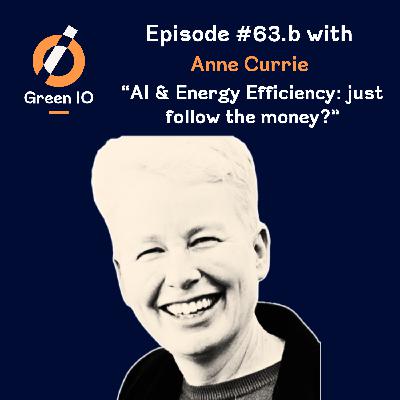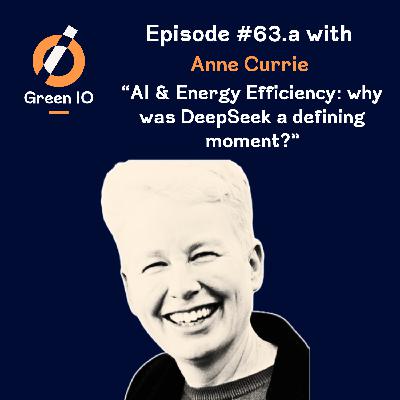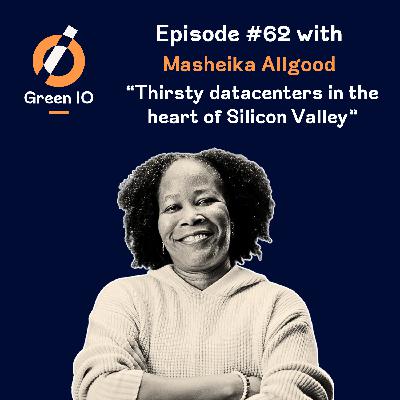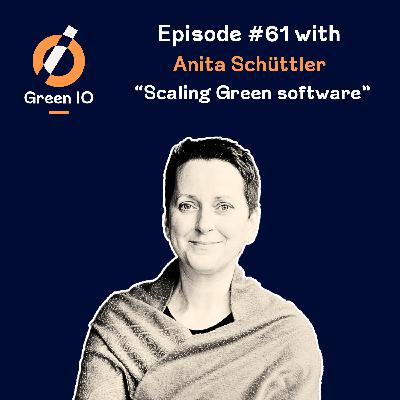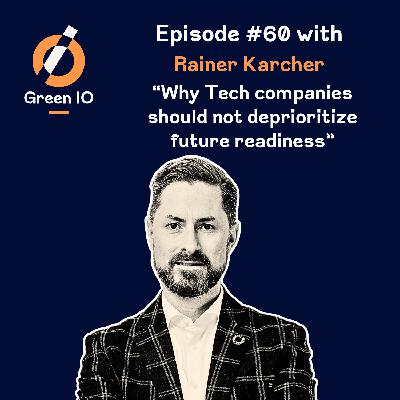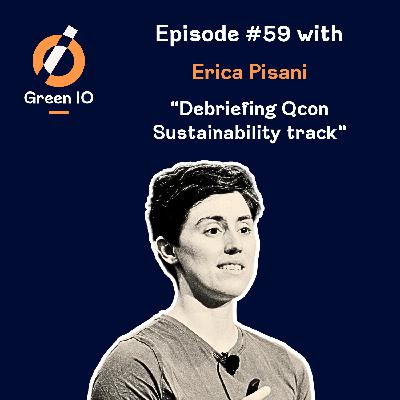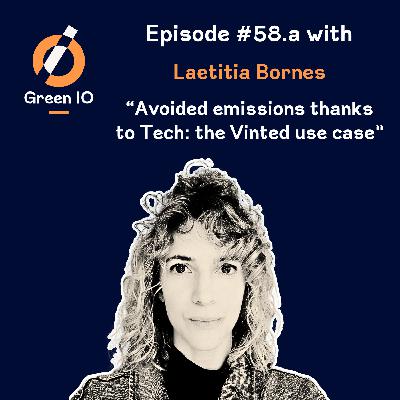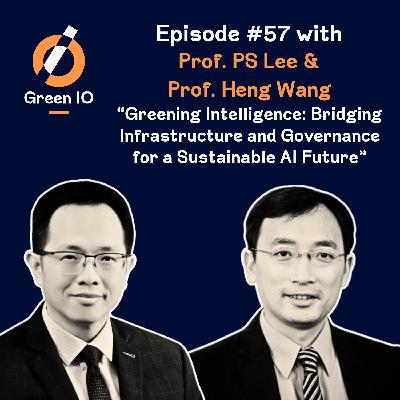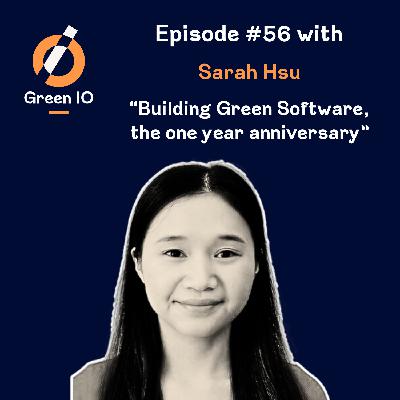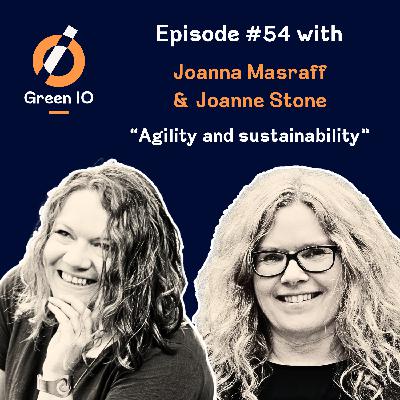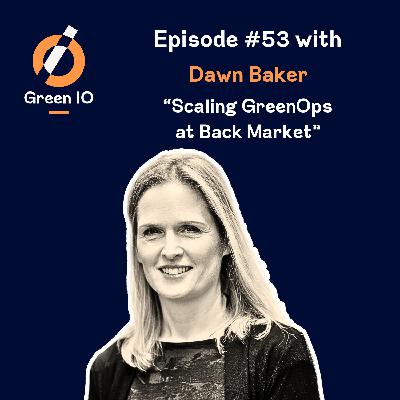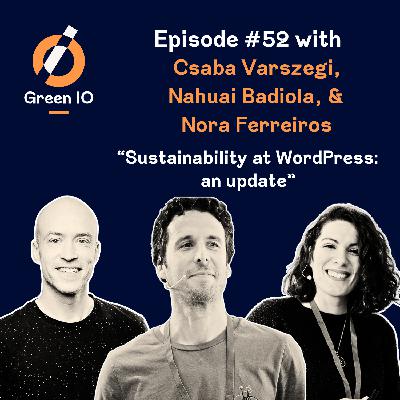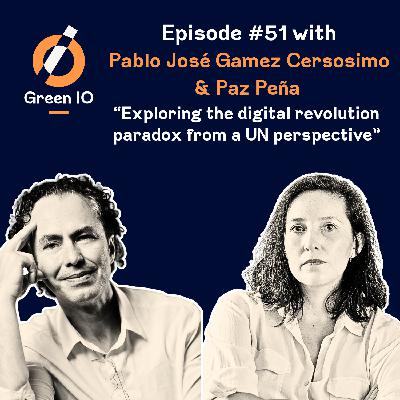#50 Is Eroom's law the future of Moore's law? with Tristan Nitot
Update: 2024-12-03
Description
Moore’s law is dead! Long live Eroom’s law!
This provocative statement from Tristan Nitot highlights the pivotal role of software engineers in our journey as an industry toward a sustainable and more frugal digital world. The majority of our old devices, from smartphones to desktop, still work. How come that we waste such a massive gathering of precious resources such as minerals, energy, water and even our human time which we use to manufacture and maintain them? What should we do to break the trend of electronic waste and the ever-increasing footprint of the IT sector on our physical world?
Gael Duez sat down with Tristan Nitot to start answering these questions in this Green IO episode where we covered:
⚖️ Why Wirth’s law matters more than Moore’s law
🗑️ How the Auvergnat cultural aversion for waste accelerated the birth of the Eroom’s law
🔎 How to find (sustainability) weakness in your software,
🐍 Why Python is not (always) guilty of being resource hungry and how to embrace a wise use of alternative libraries such as Polars,
✨The real ROII of using AI to optimize software.
❤️ Subscribe, follow, like, ... stay connected the way you want to never miss an episode, twice a month, on Tuesday!
📧 Once a month, you get carefully curated news on digital sustainability packed with exclusive Green IO contents, subscribe to the Green IO newsletter here.
📣 Green IO next Conference is in Paris on December 4th and 5th. Every Green IO listener can get a free ticket using the voucher GREENIOVIP here. A small gift for your huge support. 🎁
Learn more about our guest and connect
- Tristan’s LinkedIn
- Tristan’s website “L’octet Vert”
- Green IO website
- Gaël's website
📧 You can also send us an email at contact@greenio.tech to share your feedback and suggest future guests or topics.
Tristan's sources and other references mentioned in this episode
- Niklaus Wirth’s article "A Plea for Lean Software"
- Moore’s law (wikipedia)
- Greenit.fr
- Matt Parker's video "Someone improved my code 408 000 000 times better"
- Optimisation de performance bénéfice ou sacrifice ? (FR),
- WeDoLow (software optimization)
- Polars library
- The Digital Collage workshop
- The Biodiversity Collage workshop
- Tom Fishburn’s cartoon about AI and email
- Tristan Nitot’s “La loi de Moore est morte et c'est une bonne nouvelle” (FR)
Transcript (auto-generated)
Tristan Nitot (00:00 )
basically if you manage to double the speed of your software every other year, then you don't need to change your hardware. Because every other year, you have like Moore's Law, you're liberating half of your computing power and resources. And so you have half of it which is available. And half of it means you can invent
new stuff. And I call it Erooms Law.
It's like more in reverse, because it's basically the same.
Gaël Duez (00:32 )
Hello everyone, welcome to Green IO
I'm Gaël Duez and in this podcast, we empower responsible technologists to build a greener digital world one bite at a time. Twice a month on a Tuesday, our guests from across the globe share insights, tools and alternative approaches enabling people within the tech sector and beyond to boost digital sustainability. And because accessible and transparent information
is in the DNA of Green IO, all the references mentioned in this episode, as well as the full transcript, will be in the show notes. You can find these notes on your favorite podcast platform and of course on our website greenio.tech.
Gaël Duez (01:19 )
It was a late evening in December 2021 in my small Parisian flat. The wind was blowing and a bit of rain was making me feel very comfortable being at home. I was staring at my living room wall, which happened to also be my kitchen wall. I told you this is a Parisian flat. And on this wall were dozens of post-its with voting dotes and names on it, such as Take It Green,
Green Coding, Green Technologists, Eco IO, well, as
I was on the final stage of finding the names of this podcast. The final battle was between Green IO and Green Bytes. And here comes a surprise, the winner was Green Bytes. But Tristan Nitot had been broadcasting for years a successful podcast in French named
L'Octet Vert, the green octet. And I wanted his permission to use a similar title in English. And he told me, I'd rather not. Back in those days, he had plans to expand the podcast internationally. And after he told me this, we talked for an hour. And the amount of tips and support he provided me was mind blowing.
This call was one of the best investments I made while launching the Green IO adventure. So Green IO won and as far as I know from your feedback, that's a pretty cool name as well.
to have him on the show to celebrate this milestone. But we don't have Tristan today with us only for celebrations. We have him to discuss how we will run weather forecasts in 10 years from now on an Amstrad computer from the 80s. OK, maybe I'm exaggerating a bit here, but it illustrates well the concept that Tristan has been pushing relentlessly for a year now about his Eeroom's law and the fact that more law is dead.
This focus on sustainability in Tristan's life started 15 years ago in parallel of a successful career in Mozilla Europe,
which he co-founded, then Cozy Cloud as a CPO and Quant as its CEO. He now works at Octo Technology to work on digital sustainability and frugality, but Tristan is also well known for
being one of the strongest voices in Europe for open source software and privacy, a topic he even wrote a book about, surveillance. Welcome back on the show, Tristan. It's always a pleasure to have you here.
Tristan Nitot (04:09 )
Bye.
It's a pleasure too and an honor.
Gaël Duez (04:14 )
let's get started right now. And I've got a question for you, Tristan. From podcaster to podcaster, just between you and me and a few thousands listeners. Did you kill it? Did you kill Moore's law
Tristan Nitot (04:30 )
No, it's not my fault. It happened. Well, I think they say that trees don't grow up to the sky. They have to end sometimes. And has experienced a fantastic run for more than 50 years. But it's pretty close to being
It may be a shock for many people because we've all been living with Moore's Law around us. And to the point it's a fact of life. And to the point we forget about it, it's just like Next year's computers are going to be faster, except that it's slowing And they keep improving stuff, but more Law basically is almost dead.
Gaël Duez (05:22 )
and for the listeners not that familiar with the concept of more law, could you just describe it in one sentence?
Tristan Nitot (05:28 )
Sure, of course. It was created by Gordon Moore, who was a co-founder of Intel. It pronounced in 1965 in the very early days of semiconductors. Moore realized that basically because they were making so quickly
progress about manufacturing microchips and semiconductors, they were able to double the number of transistors they could put into a semiconductor, basically a computer chip, memory, processor, and stuff. And if they could manage to double the number of transistors per chip every two years, like they've been doing,
And it would be fantastic. And so they decided it's not a physical law, is a programmatic decision of investing in research and development in order to double the number of choices store every other year so that microchip will double in computing power every two years. And they managed to basically pull it off.
for more than 40 years. But now, starting in the mid 2010s, it's really slowing down. they managed to put it off for 40 years, which is amazing.
Gaël Duez (06:51 )
which is amazing for a non-physical law. As you stated, it's almost a research and investment program rather than a law, followed by humans at Intel and then everywhere around the world in the semiconductor
Tristan Nitot (06:59 )
Yes.
Gaël Duez (07:06 )
Now I'd like to ask you a question about whether it's really dead or not. Because someone would argue that with the current trend on GPU chips achieving an etching smaller and smaller, we're talking ab
Comments
In Channel


